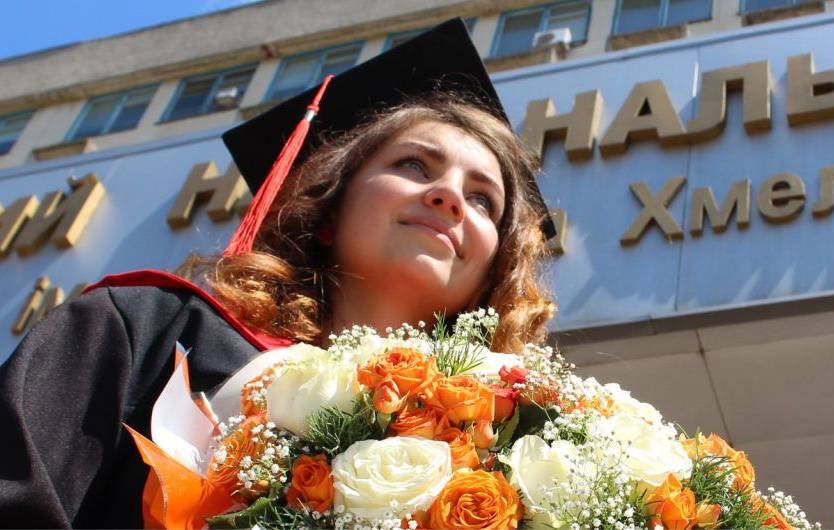The Educational-Scientific Institute of Ukrainian Philology and Social Communications of Bohdan Khmelnytsky National University of Cherkasy has joined in conducting classes for students of the “University of the Third Age”.
According to the order of the Ministry of Social Policy of Ukraine in August 2011, “Universities of the Third Age” were launched as a socio-pedagogical service for elderly people. In Cherkasy, the “University of the Third Age” operates under the Territorial Center for the Provision of Social Services. Its activities are aimed at implementing the concept of lifelong learning, and the program closely resembles the model of a classical university.
Bohdan Khmelnytsky National University of Cherkasy is one of the partners helping to implement the educational process.
The Head of the Department of Ukrainian Linguistics and Applied Linguistics, Liudmyla Shytyk, held a class on the Ukrainian language, during which the issues of the uniqueness and originality of the Ukrainian language, its lexical richness, phonetic melodiousness, variegation of affixes, morphological variability, and syntactic flexibility were discussed. The participants showed great interest in the issues raised, actively commented on the highlights of the Ukrainian language, and also expressed their wish to continue working on improving their speaking skills.
In December, two classes on ethnology are planned, which will be held by Professor Nataliia Yarmolenko at the “Museum of the Ukrainian Towel”.
The lecturers of the Department of Journalism, Advertising and PR-Technologies – Head of the Department Tetiana Bondarenko and Senior Lecturer Svitlana Koval – conducted an interactive class on combating disinformation and manipulation.
“Age should not dampen people’s educational ambitions and close off access to everything that is new and modern. The training will help the students of the University of the Third Age to understand the world of disinformation, as well as give concrete tools to fight against the PSYOP, which is carried out by the enemy against our country,” the Head of the Department of Journalism, Advertising and PR-Technologies, Tetiana Bondarenko, addressed the audience.
Similar lessons on media literacy were held last year in schools of the city. It is now possible to compare the level of information perception among the youth and the older generation.
During the lesson, those present learnt to distinguish real images from those generated by AI and were introduced to the concept of “media literacy”.
The participants of the training expanded their vocabulary with such concepts as disinformation, manipulation of facts, fake, propaganda, hidden advertising, clickbait, censorship and learnt to identify these concepts in media publications through a game.
During the class, they learnt how to distinguish facts from opinions and properly verify information, how not to become a victim of phishing and other types of fraud in the Internet space, and familiarized themselves with the list of “white media”.
Additionally, the rules for consuming news via messengers, particularly Telegram, were discussed. The audience of the lecture was taught to set up two-factor authentication to enhance the protection of personal information. The training participants also learnt how to analyze rumors and separate truth from disinformation.
Tetiana Bondarenko and Svitlana Koval explained to those present why participating in seemingly entertaining but potentially dangerous online surveys should be avoided.
“Everything you do online leaves a trace, so be cautious when consuming and sharing content,” the Senior Lecturer of the Department of Journalism, Advertising and PR-Technologies, Svitlana Koval, added.
At the end, speakers and participants identified the main steps to media literacy.
The participants shared that, thanks to the training, they learnt how to properly distribute news and distinguish fake from the truth, expressed gratitude for the experience gained, and assured that they would now consume content more carefully.
“I consider media literacy training to be relevant. We need to understand what should be perceived as a fact, and where there is fake news or manipulation or other information. Therefore, I believe that media literacy plays a crutial role both in everyday life and in professional activity,” Svitlana Bieliaieva, a student of the University of the Third Age, Chair of the Board of the NGO “KoloObih”, shared her impressions.
http://cdu.edu.ua/en/news-en/bknuc-lecturers-conduct-classes-for-students-of-the-university-of-the-third-age.html#sigProIdc8b2e8db85
The Department of Ukrainian Linguistics and Applied Linguistics
The Department of Journalism, Advertising and PR-Technologies













